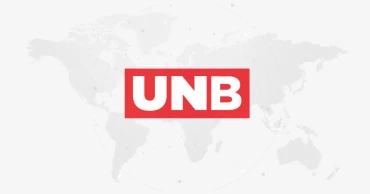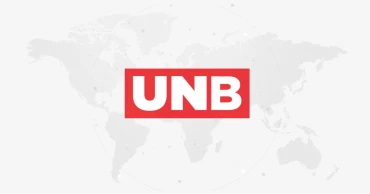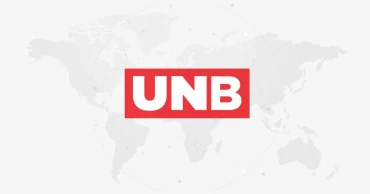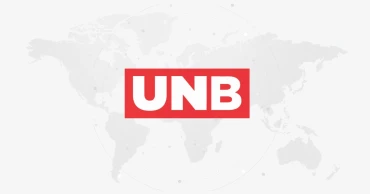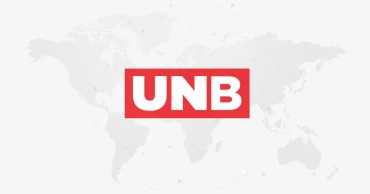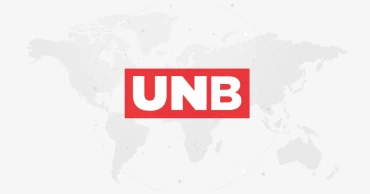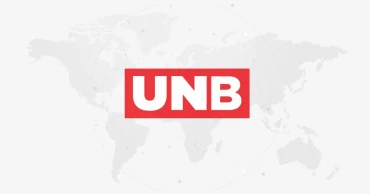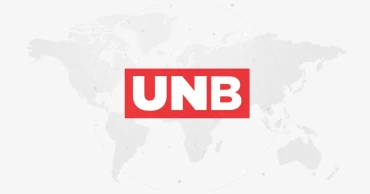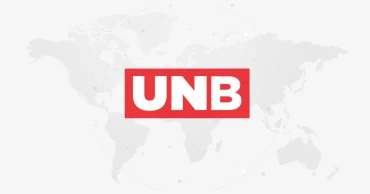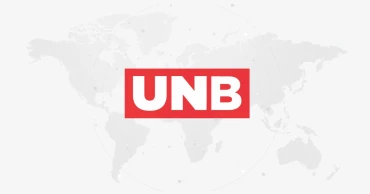Cabinet
Cabinet okays draft law for making Speedy Trial Act as permanent one
The Cabinet on Monday has cleared the draft of Law and Order Disruption (Speedy Trial) Act 2024, aiming to make the existing provisional law as a permanent one.
The approval came from the Cabinet meeting chaired by Prime Minister Sheikh Hasina at her office in the city on Monday.
PM directs to reduce import duty on rice. edible oil, sugar, date before Ramadan
Briefing the reporters at Bangladesh Secretariat, Cabinet Secretary Md Mahbub Hossain said the Law and Order Disruption (Speedy Trial) Act was first promulgated in 2002 and then the effectiveness of the law was extended on several occasions through amendments.
He said the existing Law and Order Disruption (Speedy Trial) Act would be effective till April 9, 2024. So, the Public Security Division placed the proposed law before the Cabinet, saying that this law has successfully played an effective role in curbing crimes, he added.
Bangladesh is an ideal place for foreign investment: PM Hasina tells British MPs
“The cabinet has given the final approval to make Law and Order Disruption Offenses (Speedy Trial) Act 2024 as a permanent one. There is no change in the draft law,” said the Cabinet Secretary.
Besides, the Cabinet has given the final approval to the draft of National Primary Education Academy Act, 2024.
BNP relies on ‘other force’ to go to power: PM Hasina tells British parliamentary team
2 years ago
Cabinet Division announces names for new Cabinet
The cabinet Division has invited some 25 MPs as ministers and 11 as state ministers to take oath as new cabinet members led by Prime Minister Sheikh Hasina.
Cabinet Secretary Md Mahbub Hossain shared the information with journalists at the secretariat on Wednesday night.
Read more: Cabinet clears draft law to check loan defaulters
The 25 ministers are: AKM Mozammel Haque, Obaidul Quader, Nurul Majid Mahmud Humayun, Asaduzzaman Khan Kamal, Dr. Dipu Moni, Tajul Islam, Farooq Khan, Abul Hasan Mahmud Ali, Advocate Anisul Haq, Dr. Hasan Mahmud, Abdus Shaheed, Sadhan Chandra Majumder, RAM Ubaidul Mokhtadir Chowdhury, Abdur Rahman, Narayan Chandra Chanda, Abdus Salam, Mohibul Hasan Chowdhury Nowfel, Farhad Hossain, Faridul Haque Khan, Zillul Hakim, Saber Hossain Chowdhury, Jahangir Kabir Nanak, Nazmul Hasan Papon, Yeafesh Osman and Dr. Samanta Lal Sen.
The 11 state ministers are: Mohammad A. Arafat, Zunaid Ahmed Palak, Nasrul Hamid, Simeen Hossain (Rimi), Rumana Ali, Ahsanul Islam (Titu), Shafikur Rahman Chowdhury, Khalid Mahmud Chowdhury, Zahid Farooq, Kujendra Lal Tripura, Mohibbur Rahman.
Of them, Yeafesh Osman and Dr. Samants Lal Sen will take oath as technocrat ministers, he added.
Regarding portfolios, the secretary said that it will be known tomorrow after taking oath.
Read more: Cabinet body approves proposals for import of fertliser, LNG and sugar
2 years ago
Cabinet body approves proposals for import of fertliser, LNG and sugar
Cabinet Committee on Government Purchase (CCGP) approved a total of 14 proposals in its meeting on Wednesday under which the government will import 135,000 metric tons (MT) of fertliser, 4 LNG (liquefied natural gas) cargoes and 12,500 MT of sugar to meet the growing demands.
Finance Minister AHM Mustafa Kamal presided over the meeting held virtually.
Additional secretary of the Cabinet Division, Sayeed Mahbub Khan briefed reporters about the meeting’s outcomes.
According to proposals placed by the Ministry of Industries, its subordinate body Bangladesh Chemical Industries Corporation (BCIC) will import 90,000 MT of urea fertilisers from different companies under state-level agreements.
Of these, some 30,000 MT of bagged granular urea fertiliser will be imported from Muntajat of Qatar at a cost of Tk 95.32 crore ($295.33 per MT), 30,000 MT of bagged granular urea from Karnaphuli Fertiliser Company (Kafco) at Tk 105.14 crore ($325.75 per MT), and 30,000 MT of granular urea from Sabic of Saudi Arabia at Tk 105.02 crore ($325.33 per MT).
Read more: Cabinet approves amendment to let govt decide energy price without BERC
The BCIC will also import 30,000 MT of phosphoric acid at a cost Tk 184.64 crore from Sun International FZU, UAE (local agent: M/S Agro Industrial Input, Dhaka) through international open tender.
The Agriculture Ministry placed four proposals under which its subordinate body Bangladesh Agriculture Development Corporation (BADC) will import a total of 145,000 MT of different types of fertilizers from state-owned companies of different countries under state level agreements.
Of these, 40,000 MT of DAP fertilizer will be imported from MA’ADEN, Saudi Arabia at Tk 238.59 crore ($554.25 per MT), 50,000 MOP fertilizer from Canadian Commercial Corporation at Tk 226.16 crore ($420.31 per MT), 25,000 MT of TSP fertiliser from CGT of Tunisia at Tk 105.73 crore ($393 per MT) and 30,000 TSP from OCP, SA of Morocco Tk 132.67 crore ($411 per MT).
As per proposals placed by the Energy and Mineral Resources Division, its subordinate body Petrobangla will import two LNG Cargo, each having 33.60 lakhs of MMBtu of LNG, from Vitol Asia Pte Ltd.,of Singapore, one at Tk 465.17 crore ($10.978 per MMBtu), and another at Tk 503.73 crore ($11.88 per MMBtu),.
A similar capacity cargo containing LNG will be imported from Gunvor Singapore Pte Ltd., Singapore, at Tk 528.35 crore ($12.47 per MMBtu), and another cargo from Excelerate Energy LP, US at Tk 516.49 crore ($12.19 per MMBtu).
The Trading Corporation of Bangladesh (TCB), under the Commerce Ministry, will import 12,500 MT of sugar from abroad at a cost of Tk 64.20 crore with per kg value at Tk 82.
2 years ago
Cabinet clears draft law to check loan defaulters
The Cabinet on Tuesday approved the draft of Bank-Company (Amendment) Act, 2023 in a bid to check willful loan defaulters.
Under the draft law, maximum three members (instead of existing four members) of a family will be allowed to be directors of a bank.
The approval came from the cabinet meeting chaired by Prime Minister Sheikh Hasina at her office here.
Now the banking activities are run under the Bank-Company Act, 1991.
Its amendment proposal was brought in order to make the law modern and time-befitting one, said Secretary (Coordination & Reforms) at the Cabinet Division Mahmudul Hossain Khan while briefing reporters at the secretariat after the meeting.
“Those who are willful loan defaulters are defined and what actions will be taken against them are mentioned here,” he said.
Talking about the actions, the secretary said the banks must send the list of willful loan defaulters to Bangladesh Bank and it can impose ban on going abroad, issuance of trade license (against them), and registration under the Bangladesh Securities and Exchange Commission and the Registrar of Joint Stock Company and Firm.
Besides, a willful loan defaulter can’t be eligible to be a director of a bank or financial institution until five years passes after being excluded from the list of willful loan defaulters, he said.
Read more: Cabinet clears draft family court act 2022
If any director of a bank becomes a willful loan defaulter, Bangladesh Bank can declare his post vacant, he added.
The secretary said if a bank fails to send the list of loan defaulters to Bangladesh Bank in time, the bank can be fined Tk 50 lakh to Tk one crore. The bank will have to count additional Tk one lakh as fine for every each day delay, he said.
“As per the existing law, the maximum four members of a family can be directors of any bank, but it has been reduced to three now,” he said.
The bank directors and their family members must provide collaterals, bond or security for taking loans from the bank as per a new provision incorporated in the draft law.
A provision was also included here so that Bangladesh Bank can regularly inspect different institutions and foundations run under the law, he added.
2 years ago
Cabinet clears policy to fix minimum and maximum prices of agricultural goods
The Cabinet on Monday cleared the draft of the National Agricultural Marketing Policy, 2023 in order to modernise the marketing system and ensure the highest benefits for the farmers through different measures including fixation of minimum and maximum rational prices for the agricultural goods.
The approval came from the Cabinet meeting chaired by Prime Minister Sheikh Hasina at her office.
“The policy has been designed incorporating some goals and targets in a bid to modernise the marketing system of agricultural goods,” said cabinet secretary Mahbub Hossain while briefing reporters at Bangladesh Secretariat after the meeting.
He said the policy focuses on how the market of agricultural goods can be monitored and the farmers can be given the highest benefits.
“Steps will be taken to fix and implement the minimum and maximum rational prices of agricultural goods,” he said.
Also Read: Undisbursed portion of agriculture and rural loans will be disbursed to farmers by Bangladesh Bank body
Other steps which will be taken as per the policy include enhancing links between the farmers and markets, strengthening information management, improving marketing infrastructures, promoting digital markets, strengthening community-based, group-based and contract-based marketing, promoting e-agricultural marketing system and digital markets, and developing the overall supply chain, he said.
During the approval of the policy, the Prime Minister directed to design an agricultural goods-processing policy with a view to modernising the sector, maintaining international standards of products and thus promoting the export of processed goods, said the cabinet secretary.
He said the directive came as the markets for Bangladeshi processed agricultural goods have created worldwide as Bangladeshi diaspora communities use the goods and foreign people are also showing interest to the commodities.
The PM also directed to consider jute goods as agricultural ones saying that the jute sector should get all sorts of facilities entitled for the agricultural sector.
Jute goods have been treated as industrial products. But now the use of jute fiber has enhanced massively and created a huge prospect for the goods locally and internationally. So, now jute goods need to be considered as agricultural ones to unlock this huge prospect, said Mahbub Hossain.
The Cabinet also approved in principle the draft of the Sheikh Hasina Agricultural University Act, 2023 to establish the country’s 9th agricultural university in Shariatpur. “It will be an institute like the existing agricultural universities,” said Mahbub Hossain.
Besides, the Cabinet cleared the draft of Bangladesh Energy Regulatory Commission (Amendment) Act, 2023 in a bid to replace an existing ordinance that paved the way for the government to adjust the prices of gas and electricity without public hearings.
On December 1, 2022, the “Bangladesh Energy Regulatory Commission (amendment) Ordinance, 2022” was promulgated amending the Bangladesh Energy Regulatory Commission (BERC) Act-2003. The new ordinance was placed in Parliament on January 5.
“This ordinance is now being turned into an act. No change was made here. It is the same as the ordinance,” said the top bureaucrat.
3 years ago
Proposal was made to demolish Kamalapur Station for metro rail landing, and I opposed: PM
Bangladesh's Prime Minister Sheikh Hasina today (January 09, 2023) said that the government is facing various challenges in regard to development projects in the country.
“Challenges arise when we go for any (development) work… We completed all the projects, facing these challenges,” she said.
The prime minister said this while delivering her introductory speech at the weekly Cabinet meeting, held at her office (PMO).
Talking about the Metro Rail project, she said that initially, in the feasibility study, the MRT route was designed to go through Bijoy Sarani.
Read more: PM emphasises signing PTA, FTA with Brazil and three other South American countries.
“If we went with that, we would’ve had to close down the Tejgaon airport which has a 9000 ft long runway. I was vehemently against that proposal,” she recalled.
In this connection, she said that during the 1998 flood, all the relief arrived at the Tejgaon airport as Dhaka airport in Kurmitola went under water.
She also said that the planetarium’s (at Bijoy Sarani) dome was much higher in the original design.
“We reduced that height. If the height goes beyond 60-70 ft, it will come under the airport funnel (of the Tejgaon airport),” she said.
Read more: Doing whatever is needed to ease pains despite war, pandemic: PM
She told the Cabinet meeting that if the old alignment were used, the government would have to demolish 22 buildings.
“I proposed the new route, using the Khamar Bari area,” she said.
The PM also said that she extended the metro rail route up to Kamalapur from Bangladesh Bank.
“At that time, proposal was made to demolish Kamalapur Station for metro rail – for its turning and landing space,” she added.
Read more: Stay alert against anarchy ahead of next election: PM Hasina to the Nation
The PM said she told the officials concerned that it would not be wise to demolish such a big landmark and construct another.
“I asked them, how we could go ahead while keeping that (Kamalapur) station intact. If necessary, metro rail will go over the station or find another site for turning. Now it is done that way,” she said.
She also mentioned that the Metro Rail project faced resistance at Dhaka University area from the students, saying that it would destroy the academic atmosphere of the university.
“I assured them that there will be no disturbance due to the Metro Rail as it will go through a corner of the university area,” she said.
Read More: Dhaka Metro Rail Uttara to Agargaon Route: A Detail Overview
The Metro Rail project came to a stop after the Holey Artisan attack, in which seven Japanese nationals involved with the project were killed.
“At that time, all Japanese people went back to their homeland. I expressed condolence at once to the then Japanese Prime Minister Shinzo Abe and while visiting Japan, I met the family members of the seven deceased Japanese officials,” she said.
Later, she recalled, it was again stopped during the Covid-19 pandemic. “But at that time, the work progressed slowly, using the videoconferencing system,” she added.
Sheikh Hasina urged all to use metro rail cautiously and mindfully as it uses the most modern technology.
Read More: Fares of metro rail are reasonable: Quader
“I will request all to use the (Metro) Rail with utmost care, as this is an asset of the whole country and its people,” she said.
She said that the government of Bangladesh is constructing an underpass to go from the airport railway station to the airport – for the convenience of passengers and Hajj pilgrims.
3 years ago
Autonomous, legislative and local govt bodies must have prior clearance for expenditures, Cabinet decides
The autonomous, legislative and local government bodies will need clearance from the Finance Division over financial expenditures as the Cabinet on Monday approved the draft of Public Service (Amendment) Act, 2022, incorporating such provisions.
The approval came from the cabinet meeting chaired by Prime Minister Sheikh Hasina at her office.
“In the existing Public Service Act, 2018, now the Finance Division has authority over the financial matters of the government entities, officials and employees, but it was not clear what would be involvement of the Finance Division regarding the autonomous, legislative and local government bodies,” said Cabinet secretary Khandker Anwarul Islam while briefing reporters at the Bangladesh secretariat.
Read: Cabinet directs to verify news, information being shared about banking sector
Explaining the provision, he said that the public universities, the Election Commission, or local bodies like city corporations and union parishads will have to take opinions of the Finance Division over their financial expenditures. “So, the Finance Division will have a say” he added.
The Cabinet Secretary, however, said it had been mandatory too for the autonomous, legislative and local government bodies to take clearance from the Finance Division before, but the enactment of the existing law in 2018 made it unclear.
The meeting also approved the proposal to sign an agreement between Bangladesh and Iran to avoid the double taxation and prevent dodges of revenue.
The meeting approved the proposal to ratify the Minamata Convention on Mercury, an international treaty adopted in 2013 in Japan to protect humans and the environment from harmful effects of mercury pollution.
The treaty came into full force in 2017 with 137 countries participating in the convention. The treaty banned the opening of new mercury mines. It also required existing mines to be phased out and the use of mercury in products to be restricted.
The total mercury release in Bangladesh is approximately 32,660kg per year, which polluted the environment, said Anwarul Islam.
Read: Cabinet approves amendment to let govt decide energy price without BERC
The Cabinet also cleared another proposal to ratify the Nagoya Protocol on Access to Genetic Resources and the Fair and Equitable Sharing of Benefits Arising from their Utilisation to the Convention on Biological Diversity.
The protocol, which is also known as the Nagoya Protocol on Access and Benefit Sharing (ABS), was adopted in 2010 as a supplementary agreement to the 1992 Convention on Biological Diversity (CBD).
3 years ago
Some voice reservations over govt's move to amend BERC Law
The government has initiated a move to amend the existing Bangladesh Energy Commission (BERC) Act 2003, creating the scope for it to arbitrarily fix the prices of power and energy bypassing the regulatory body.
According to official sources, the Energy and Mineral Resources Division recently moved a proposal titled: “BERC Act (Amendment) -2022” to the Cabinet Division to bring this amendment to the existing law.
Against that background, the Cabinet today (Monday) approved an amendment to Bangladesh Energy Regulatory Commission (BERC) Ordinance 2022 to empower the government to set fuel tariff on its own under special circumstances without waiting for the commission’s public hearing and decision.
It received the nod from the Prime Minister as she is in-charge of the Ministry of Power, Energy and Mineral Resources, said the sources.
Before the approval was announced, an official of the Energy and Mineral Resources Division told UNB: “If the Cabinet approves the amendment proposal, then it will be placed as an amendment bill in the parliament.”
Read more: Cabinet approves amendment to let govt decide energy price without BERC
If and when the bill is passed by the parliament, it will turn into law with the president's signature.
As per the existing BERC Act, if the government wants to adjust the power tariff or price of natural gas, the relevant state-owned body has to place a proposal to the regulator and then the BERC holds a public hearing to listen to the opinions of the stakeholders on the issue.
After a public hearing, the BERC announces its decision within 90 days on the price adjustment proposal.
But if the proposed amendment is passed by the parliament, the government can at any time fix the tariff of electricity and other energy prices like gas or petroleum products, said the official requesting anonymity as the issue is sensitive.
He said that under the current law, it takes at least 90 days to bring any change in power tariff or gas prices for which the government takes the new move to reset the price anytime it is required.
“Side by side, the current procedure of BERC will remain in place”, he said.
Officials said the current nagging crisis in the energy and power sector has prompted the government to initiate such a move from time to time to adjust the energy and power tariff according to its needs.
Consumers Association of Bangladesh (CAB) vice chairman Prof ASM Shamsul Alam termed the government’s move as “destructive to the existing semi-judicial process of the BERC in fixing power and energy prices.“
Read more: BERC to announce decision on review appeal on bulk power tariff Monday
He said the BERC was established with a good intention to bring accountability and ensure transparency in the corporate sector in the energy sector as certain procedures have to be followed in any decision making process while fixing the prices.
“But now, the proposed amendment will be detrimental for the energy sector in this regard,” he added.
3 years ago
Cabinet approves amendment to let govt decide energy price without BERC
The Cabinet on Monday approved an amendment to Bangladesh Energy Regulatory Commission (BERC) Ordinance 2022 to empower the government to set fuel tariff on its own under special circumstances without waiting for the commission’s public hearing and decision.
The approval came at the Cabinet meeting with Prime Minister Sheikh Hasina in the chair at the PMO, said Cabinet Secretary Khandker Anwarul Islam while briefing the media at the Secretariat.
Read: Block militants' access to shelter, finance: PM to secretaries
He said the BERC can wait for up to 90 days to review and take a decision on fixing tariff rates and this is a long time. The amendment is being done so government can set the fuel price on an urgent basis in a situation like what prevails now.
The possibility of importing fuel and energy under private arrangement was discussed at the meeting and the relevant authorities were given direction in this regard, he said.
3 years ago
Govt okays fertilizer import, procurement of container scanner systems
The Cabinet Committee on Government Purchase (CCGP) has approved a number of proposals including import of a total of 140,000 metric tons (MT) of fertilizer and procurement of 6 complete container scanner systems for custom houses.
The committee in a virtual meeting on Wednesday, with Finance Minister AHM Mustafa Kamal in the chair, gave the nod to the proposals.
As per a proposal placed by the Internal Resources Division of the Finance Ministry, the National Board of Revenue (NBR) will procure the six complete sets of container scanner systems for different custom houses from Nuctech Company Ltd. at a cost of Tk 327.01 crore.
It also approved a proposal of the Ministry of Agriculture’s to import 50,000 MT of Muriate of Potash (MOP) from Canadian Commercial Corporation under a state-level contract at a cost of Tk 414.13 crore.
The Ministry of Industries’ three separate proposals received the nod of the committee for the import of 90,000 MT of urea fertilizer by the Bangladesh Chemical Industries Corporation (BCIC).
Read: Control room opens for monitoring fertilizer situation
Of these, BCIC will import 30,000 MT of bulk granular urea from Fertiglobe Distribution Limited, the UAE, at a cost of Tk 188.93 crore while the same quantity of bulk granular urea will be imported from Muntajat, Qatar at the same cost.
The BCIC will procure another 30,000 MT of bagged granular urea from Karnaphuli Fertiliser Company Limited (Kafco) at a cost of Tk 185.12 crore.
3 years ago
